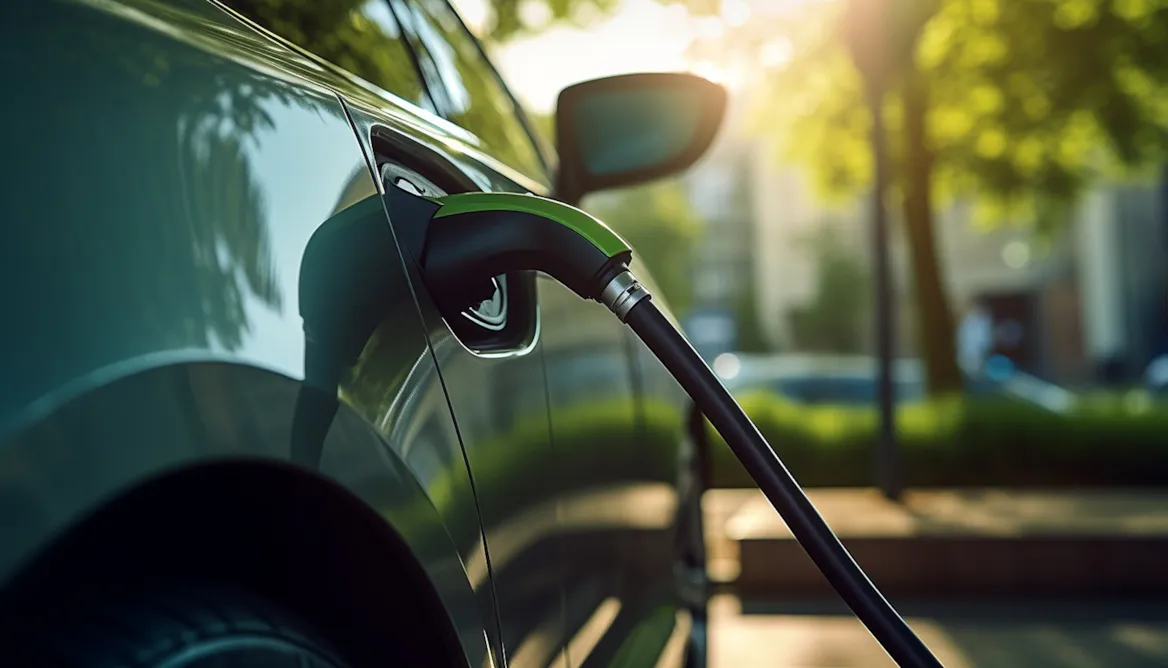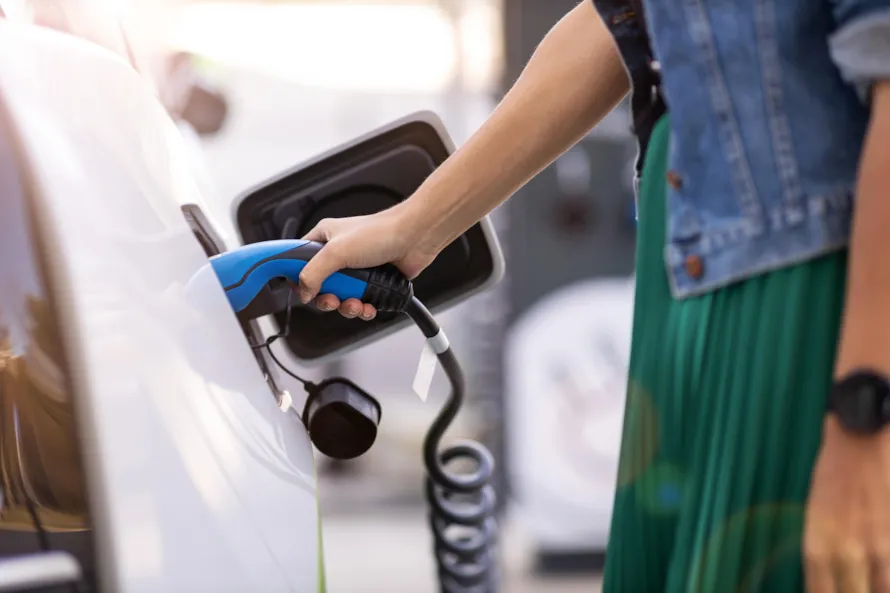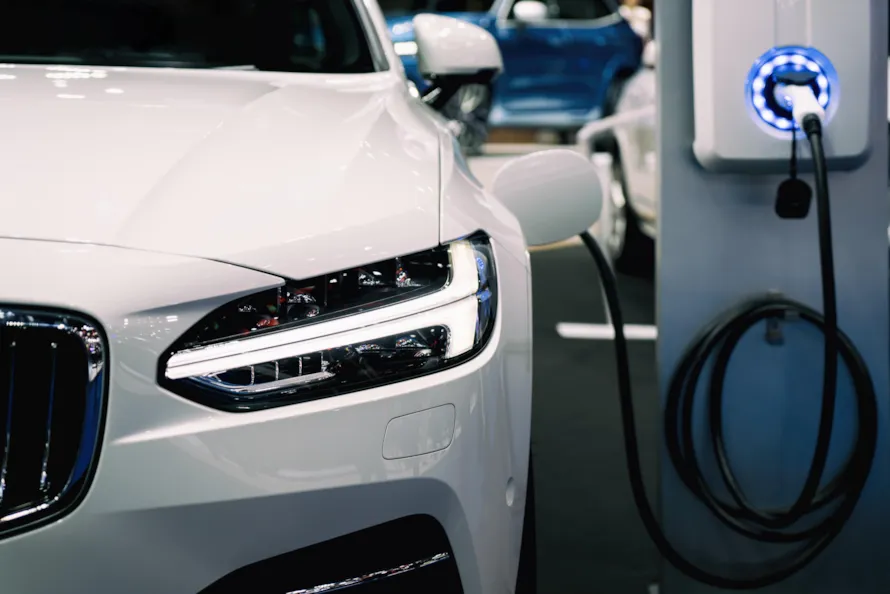This website uses cookies
Plug Into The Truth: Myths About Electric Cars Debunked
Dec 06, 2024

Electric cars are growing in popularity across the UK and many drivers are choosing new and used electric vehicles for their daily commute.
As of 2023, more than 10 million EVs were on the road, up 55% from the year before. In fact, with the industry's projected growth, EVs are expected to account for 46% of light vehicle sales by 2025. This is predicted to grow by 68% by 2030 and 83% by 2035.
There's a relentless tide of anti-EV information out there, making many shy away from going zero emission. However, the reality is, that investing in an electric car could save you many and reduce your carbon footprint.
Here at Stebbings Car Superstore, we're here to set the record straight for some of the most common myths about electric cars.
Myth 1: Electric Cars Are Just As 'Dirty' A Petrol or Diesel Vehicles
Fact: EVs emit zero emissions on the road, and the energy to power them is getting greener.
Electric vehicles run on electricity. Therefore, they emit zero tailpipe emissions.
Whilst electric production creates CO2 emissions, these emissions are still lower than those from petrol or diesel vehicles.
What’s more, the overall emissions depend on how the electricity is generated, so if the electricity you use is from a renewable source, the emissions will be lower. As of April 2024, around two-fifths of the UK’s energy and half of the UK’s electricity came from renewable sources.
Myth 2: Electric Vehicles Cannot Go On Long Journeys
Fact: The average range of an electric car is estimated to be 219 miles, meaning the average UK motorist could drive two weeks on one charge.
Are you concerned that your EV will run out of battery before you reach your destination? Of course, the range of your car will depend on the model, but with developing technology and better batteries, your EV could drive up to 219 miles with one charge.
Myth 3: Electric Cars Are At High Risk Of Catching Fire
Fact: The likelihood of an EV catching fire is significantly less than a diesel car.
Millions of electric cars are on the road, and as they’re a fairly new addition, any reports of fires are likely to make their way to the news. However, evidence suggests that there is no reason why EVs would be more likely to set alight; in fact, they are less likely to go up in flames than their petrol and diesel equivalents.
The many petrol and diesel car fires simply just go unreported.
Electrical vehicle fires are rare. They may stem from a fault or a crash, yet no official crash test has resulted in a vehicle fire. Electric cars are extensively developed to avoid these issues.
The Swedish Civil Contingencies Agency reported 23 fires in 611,000 electric vehicles in 2022, compared to 34,000 in 4.4 million petrol and diesel cars. Therefore, according to this data, EVs are 20 times less likely to catch fire.
Myth 4: EVs Are More Expensive To Run
Fact: An electric car may seem more expensive, but the running costs and upkeep are typically cheaper.
Sure, the upfront cost of an electric car may seem a little higher than a diesel or petrol car, but this is purely down to the technology they have.
Forgetting about the initial investment and thinking more about the overall ‘life costs’ of an electric car, EVs can run at around 2p per mile when charged at the right time of day. Moreover, because they are more ‘technological’, they have fewer oily engine parts that need servicing, keeping maintenance costs to a minimum.
"If an electric car owner was to drive 12,000 miles a year, at around 33 miles a day, they could use night unit rates at around 12.58 p/kWh to charge their vehicle. Therefore, a Nissan Leaf with a 62 kWh battery could cost £7.80 for a full charge and 239 miles of range, a Mercedes-Benz EQE with a 100kWh battery could cost £12.58 for a full charge and 394 miles of range, and a Tesla Model 3 with a 60kWh battery could cost £7.55 for a full charge and 272 miles of range. This is considerably less than a full tank of petrol/diesel for a similar range."
Myth 5: Electric Car Batteries Are Expensive To Replace and Cannot Be Recycled
Fact: Developments in batteries mean processing plants can extract 98% of battery materials for recycling or reuse.
Another common myth is that electric vehicle batteries are hugely detrimental to the environment and cannot be recycled, ultimately ending up in landfill. This is no longer true.
Your EV battery will be designed to last well beyond five years. Many EVs have a battery warranty of up to eight years. However, electric vehicle batteries can now be recycled at processing plants, so should your battery need replacing, it will be properly dealt with.
Some companies will even repurpose your old EV battery for home and business energy-saving purposes, storing the electricity solar panels produce. The UK Government is also working with partners to set up a sustainable battery recycling chain in the UK.
Myth 6: There Are Not Enough Communal Charging Points
Fact: As of August 2024, the number of communal charging points in the UK reached 68,273, across 35,230 locations.
The UK’s EV public charging point infrastructure is continually growing and developing to meet the needs of UK EV drivers. There’s a broad range of chargers from high-powered en-route chargers for those on long journeys to convenient charge points at hotels, attractions and other destinations, and low-powered street chargers for those who don’t have a charging point at home.
There are around four speeds, or power ratings, ranging between slow (3-7kW), fast (8-49kW), rapid (50-149kW) and ultra-rapid (150kW+).
So far in 2024, 16,569 charge points were added to the UK public network. 8450 were <8kW, 4531 were 8-49kW, 1276 were 50-149kW and 2312 were 150kW+.
Myth 7: Electric Cars Cannot Run Well In The Rain or The Cold
Fact: This is true, but did you know that petrol and diesel cars are also affected by weather conditions?
Wet and cold driving conditions are less efficient, no matter what fuel type you drive. Cold weather will decrease the EV range by 10-30%, simple because the battery has to work harder in chilly weather. We also tend to turn the heating up, increasing the load on the battery.
Myth 8: The National Grid Cannot Support An Increase In Electric Vehicle Charging
Fact: Estimates show that if all petrol and diesel vehicles became electric overnight, we'd only experience a 10% increase in demand, comfortably sitting well within the grid's capacity.
How electric vehicles are charged means they are unlikely to strain the national grid. However, realistically the shift to EV adoption will happen gradually and in England and Wales more renewable energy sources are connecting to the grid, to ensure everyone has clean electricity.
Myth 9: EVs Eat Through Tyres and Brakes
Fact: EVs consume tyres at an equal rate.
Electric vehicles typically have regenerative braking, which means the brakes are subject to less wear and tear and last longer. Electric cars carry extra weight due to their heavy batteries, so you should ensure you have suitable tyres.
Myth 10: Electric Cars Are Unaffordable
Fact: EVs are becoming more affordable, especially with used, second-hand models available.
More and more electric cars are entering the used car market. Buying a second-hand car is a smart idea for various reasons. Typically, used EVs are significantly cheaper than a new model, reducing the hit of that initial purchase and allowing you to enjoy the benefits of EV life.













































